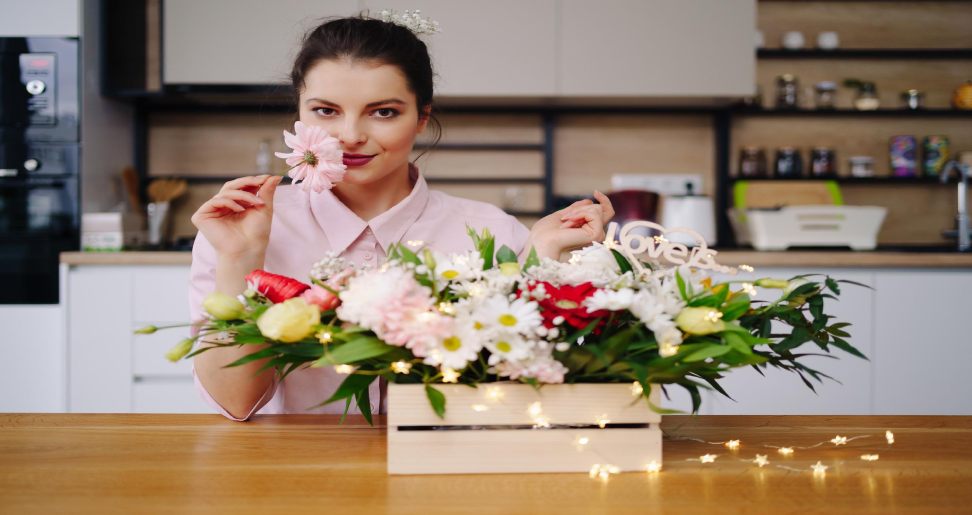Choosing the right cake for a wedding is both an exciting and daunting task. The wedding cake is more than just a dessert; it’s a centerpiece that reflects the couple’s style and sets the tone for the celebration. Here’s a comprehensive guide to help you choose the perfect cake for your big day.
1. Consider the Wedding Theme and Venue
The cake should complement the overall theme and ambiance of your wedding. If you’re having a classic, formal wedding, a traditional tiered cake with intricate designs might be appropriate. For a beach or outdoor wedding, a more relaxed, rustic cake might be fitting. The venue’s style can also influence your choice; a grand ballroom might call for a more elaborate cake, while a cozy garden setting might be suited to a simpler design.
2. Set a Budget
Before you start selecting flavors and designs, it’s crucial to establish a budget. Wedding cakes can vary significantly in price depending on size, complexity, and ingredients. A clear budget helps narrow down your options and ensures you don’t overspend. Remember to include additional costs like delivery, setup, and any extra decorations.
3. Choose a Cake Style
Wedding cakes come in various styles, each offering a unique aesthetic:
- Classic: Traditional tiered cakes with elegant designs, such as lace patterns, floral decorations, and simple fondant or buttercream finishes.
- Rustic: Naked or semi-naked cakes with a more natural, homemade look. Often adorned with fresh flowers or fruits.
- Modern: Sleek, minimalist designs with geometric shapes, bold colors, and clean lines.
- Whimsical: Fun and playful designs featuring bright colors, unique shapes, and creative decorations.
Consider what style resonates with you and aligns with your wedding’s theme.
4. Select Flavors and Fillings
While the visual appeal of the cake is important, the taste is equally crucial. Work with your baker to choose flavors that you and your guests will enjoy. Popular choices include vanilla, chocolate, red velvet, and lemon. You might also consider more adventurous options like salted caramel, lavender, or tiramisu.
In addition to the cake itself, the fillings and frosting play a significant role in the overall flavor. Options include buttercream, cream cheese, ganache, and fruit preserves. Don’t forget to consider dietary restrictions or preferences of your guests, such as gluten-free or vegan options.
5. Determine the Cake Size
The size of your cake should correspond to the number of guests you’re expecting. Typically, wedding cakes are designed to serve around 75-100 guests, but this can vary based on the number of tiers and serving sizes. It’s always better to have a slightly larger cake than needed, as it ensures everyone gets a slice and allows for any unexpected guests.
6. Consult with a Baker
Finding a skilled baker is crucial for achieving the cake of your dreams. Research local bakeries, read reviews, and look at their portfolios to get a sense of their style and expertise. Schedule a consultation to discuss your vision, taste preferences, and budget. Many bakeries offer tastings, which can help you decide on flavors and fillings.
7. Think About Cake Presentation
The way the cake is presented can enhance its impact. Consider incorporating a cake stand that complements the design of your cake and the overall décor of the reception. You might also want to add special touches like personalized cake toppers, fresh flowers, or decorative elements that reflect your wedding theme.
8. Plan for Delivery and Setup
A wedding cake should be delivered and set up at the venue close to the time of the event to ensure it stays fresh and maintains its appearance. Discuss logistics with your baker, including delivery times and setup arrangements. Ensure there’s a designated space at the venue where the cake can be displayed safely and prominently.
9. Be Mindful of the Season
The season in which you’re getting married can affect your cake choice. For instance, lighter, fruit-based cakes might be more suitable for summer weddings, while rich, decadent flavors work well for winter celebrations. Seasonal ingredients can also add a touch of freshness and relevance to your cake.
10. Don’t Forget the Cake Cutting Ceremony
The cake cutting is a symbolic part of the wedding, often featuring prominently in photos. Make sure the cake design aligns with your vision for this special moment. It’s also a good idea to discuss with your baker how the cake will be cut and served to ensure a smooth process during the reception.
11. Keep Backup Plans in Mind
Although you may have a perfect cake in mind, unforeseen circumstances can arise. It’s wise to have a backup plan, such as a smaller, simpler cake in case of any issues with the main one. Discuss potential contingencies with your baker to avoid any last-minute surprises.
12. Trust Your Instincts
Ultimately, the best cake for your wedding is one that reflects your personal taste and style. Trust your instincts and work closely with your baker to ensure that every detail is tailored to your preferences. Your wedding cake should be a reflection of your unique journey and add a special touch to your celebration.
Choosing the right wedding cake involves a combination of planning, creativity, and collaboration. By considering your theme, budget, and personal preferences, you can select a cake that not only looks stunning but also tastes delightful, making your wedding day even more memorable.
Read Also:
- Is Apparel A Good Career Path?
- Is Finance A Good Career Path?
- Is Other Specialty Stores A Good Career Path?
- Is Diversified Commercial Services A Good Career Path?

